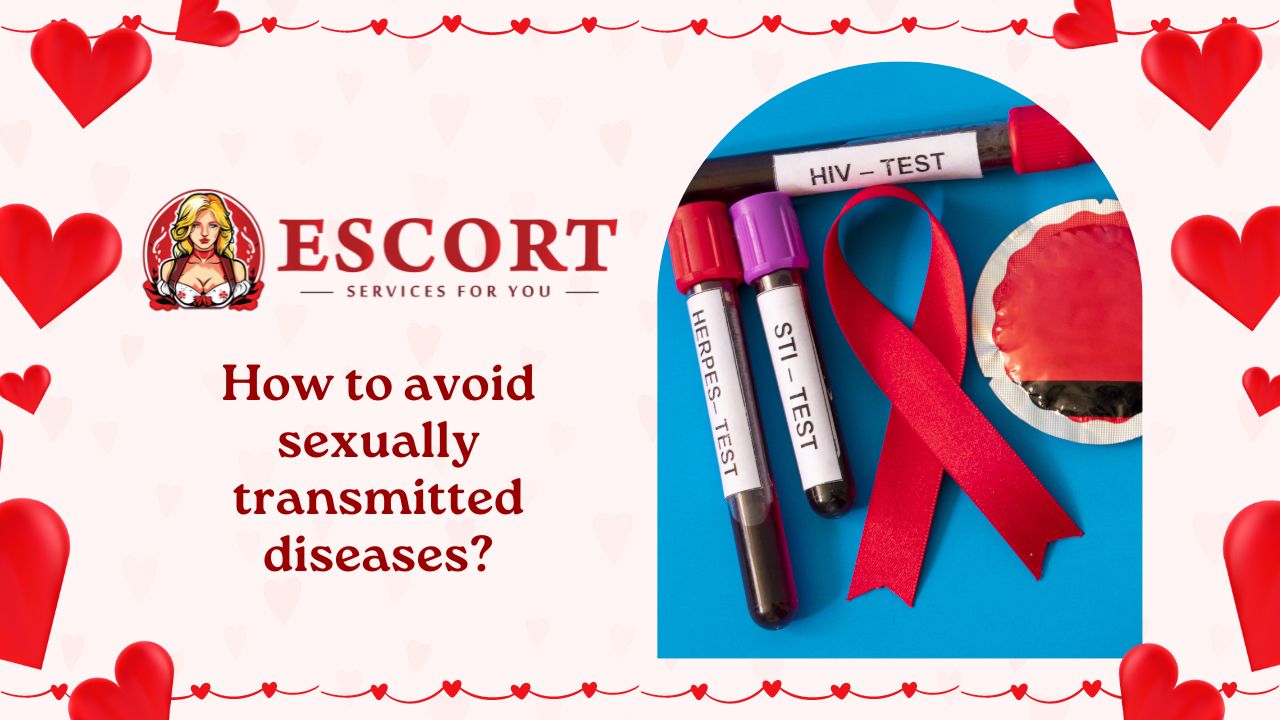Introduction to STDs
Hey there, let’s talk about a topic that can sometimes be uncomfortable but is crucial for your health and well-being – sexually transmitted diseases (STDs). Don’t worry; we’re here to break down the myths, offer practical tips, and empower you to take charge of your sexual health. So, grab a cup of tea or coffee and let’s dive into this important conversation together!
Common misconceptions about STDs
Misconceptions about STDs are prevalent and can lead to risky behaviors. One common myth is that you can only get an STD from someone who has obvious symptoms, but many infections show no visible signs. Another misconception is that only promiscuous individuals are at risk of contracting STDs, when in reality anyone who engages in unprotected sex can be affected.
Some people believe that using two condoms provides better protection, but this actually increases the likelihood of breakage due to friction. Additionally, there’s a belief that oral sex is completely safe in terms of STD transmission; however, certain infections like herpes and gonorrhea can still be passed on through oral contact.
It’s essential to debunk these misconceptions and educate ourselves on the facts surrounding sexually transmitted diseases for our own well-being.
Importance of safe sex practices
Safe sex practices are crucial for protecting yourself and your partner from sexually transmitted diseases (STDs). Using protection like condoms can significantly reduce the risk of transmission during sexual activities. Additionally, regular testing is essential to ensure early detection and treatment if needed.
Vaccinations against certain STDs like HPV can also provide added protection. Knowing your partner’s sexual history and discussing STDs openly before engaging in sexual activity is key to maintaining a healthy relationship based on trust and honesty.
Avoiding risky behaviors such as unprotected sex with multiple partners or sharing needles is vital in preventing the spread of STDs. Open communication about boundaries, consent, and safe sex practices is fundamental in any intimate relationship. By taking responsibility for your sexual health, you prioritize not only your well-being but also that of your partner’s. Stay informed and proactive when it comes to practicing safe sex.
Methods of protection against STDs – condoms, regular testing, vaccination
When it comes to protecting yourself against sexually transmitted diseases (STDs), there are several methods you can consider. Condoms, for instance, are a widely available and effective form of protection during sexual activity. They act as a barrier that helps prevent the exchange of bodily fluids containing STDs.
Regular testing is another crucial method in staying informed about your sexual health status. Getting tested periodically allows you to detect any potential infections early on and seek appropriate treatment promptly.
Vaccination is also an essential tool in preventing certain types of STDs like HPV or hepatitis B. By getting vaccinated, you not only protect yourself but also contribute to reducing the spread of these diseases within the community.
By incorporating these protection methods into your routine, you take proactive steps towards safeguarding your sexual health and well-being. Remember, prevention is key when it comes to avoiding the risks associated with STDs.
Common types of STDs and their symptoms
Sexually transmitted diseases (STDs) come in various forms, each with its own set of symptoms and risks. One common type is chlamydia, which often presents no symptoms but can lead to serious health issues if left untreated. Gonorrhea is another prevalent STD that can cause painful urination and unusual discharge.
Genital herpes is characterized by blisters or sores around the genital area, leading to discomfort and outbreaks during times of stress or illness. Human papillomavirus (HPV) can result in genital warts or cervical cancer in women if not monitored closely.
HIV/AIDS weakens the immune system over time, making individuals more susceptible to infections and other complications. Syphilis manifests in stages, starting with painless sores that eventually progress to rashes and organ damage if not addressed promptly.
It’s essential to be aware of these different types of STDs and their symptoms to prioritize your sexual health effectively before engaging in intimate activities.
Tips for talking to your partner about STDs
When it comes to discussing STDs with your partner, communication is key. It might feel uncomfortable at first, but having an open and honest conversation can strengthen your relationship and protect both of you.
Choose a time when you both are relaxed and have privacy. Approach the topic calmly, without placing blame or making assumptions. Remember, this is about taking care of each other’s well-being.
Start by expressing your concerns and why it’s important for both of you to talk about STDs. Encourage your partner to share their thoughts and feelings as well. Listening attentively will help create a safe space for dialogue.
Be prepared to discuss previous sexual history, including past partners and any potential risks. It’s not about prying into personal details but rather ensuring transparency in the relationship.
Discuss getting tested together as a proactive step towards maintaining good sexual health. Emphasize that testing is not just about suspicion but a routine part of responsible adult behavior.
Reassure your partner that talking about STDs doesn’t imply lack of trust but shows respect for each other’s health and well-being. Remember, open communication builds trust and strengthens intimacy between partners.
Factors that contribute to the spread of STDs
Understanding the factors that contribute to the spread of sexually transmitted diseases (STDs) is crucial in taking proactive steps towards prevention. One key factor is lack of awareness or education about safe sex practices and STDs themselves. This can lead to risky behaviors and unprotected sexual encounters, increasing the likelihood of transmission.
Another significant contributor is stigma surrounding STDs, which may discourage individuals from seeking testing or treatment. Fear of judgment or discrimination can hinder open communication about sexual health with partners, resulting in potential spread of infections unknowingly.
Additionally, inconsistent condom use or not using protection at all during sexual activity poses a high risk for contracting STDs. Lack of access to healthcare services for testing and treatment also plays a role in the spread as it limits opportunities for early detection and intervention.
Furthermore, engaging in multiple sexual partners without knowing their sexual history can heighten the chances of exposure to STDs. Alcohol or drug use impairing judgment may lead to unplanned unsafe sex practices, further contributing to transmission rates.
Being aware of these contributing factors empowers individuals to make informed decisions regarding their sexual health and take necessary precautions against STD transmission.
How to prevent STDs?
Preventing sexually transmitted diseases (STDs) is crucial for maintaining your sexual health. One effective way to prevent STDs is by using protection during sexual activity. Condoms act as a barrier that reduces the risk of transmission significantly.
Regular testing is another essential step in preventing STDs. Getting tested allows you to detect any infections early on and seek treatment promptly if needed.
Knowing your partner’s sexual history can also help in preventing the spread of STDs. Open communication about past experiences and current health status is key to making informed decisions together.
Avoiding risky behaviors such as having multiple partners or engaging in unprotected sex can greatly reduce the chances of contracting an STD. It’s important to prioritize safe practices and make responsible choices for yourself and your partner’s well-being.
A. Use protection during sexual activity
When it comes to staying safe from sexually transmitted diseases (STDs), using protection during sexual activity is crucial. Condoms are one of the most effective ways to prevent the transmission of STDs, acting as a barrier between partners.
It’s important to remember that not all STDs show visible symptoms, so even if your partner appears healthy, using protection is still necessary. Condoms come in various types and sizes, making it easy for everyone to find the right fit.
Whether you’re in a committed relationship or engaging in casual encounters, incorporating condoms into your sexual routine shows respect for yourself and your partner’s well-being. It’s a simple yet powerful way to take control of your sexual health and reduce the risk of contracting or spreading STDs.
So next time you engage in sexual activity, remember that using protection isn’t just about preventing unwanted pregnancies; it’s also about safeguarding against potentially harmful infections. Stay safe, stay protected!
B. Get tested regularly
Getting tested regularly for sexually transmitted diseases is a crucial aspect of taking charge of your sexual health. Testing can detect STDs early, allowing for prompt treatment and prevention of further transmission to partners. It’s essential to prioritize routine testing even if you don’t display any symptoms, as some STDs may not present obvious signs.
Many STDs can be asymptomatic, making regular testing the only way to ensure your well-being and that of your partner. Make it a habit to schedule screenings with your healthcare provider or at a local clinic specializing in sexual health services.
Testing is simple, quick, and confidential – there’s no reason to delay this important step in safeguarding yourself and those you care about. Remember that knowledge is power when it comes to managing your sexual health effectively.
C. Know your partner’s sexual history
Before engaging in sexual activity with a partner, it’s important to have an open and honest conversation about each other’s sexual history. This can help you both make informed decisions about your health and well-being.
Knowing your partner’s sexual past allows you to assess potential risks of sexually transmitted diseases based on their previous encounters. It also creates a foundation of trust and transparency in your relationship.
Ask your partner about their STI testing history, any past infections, or risky behaviors that could increase the likelihood of transmitting STDs. Remember, this discussion should be approached with respect and understanding, as it is a sensitive but crucial topic for both parties involved.
Understanding each other’s sexual histories can lead to better communication, increased trust, and ultimately contribute to maintaining a healthy and safe intimate relationship.
D. Avoid risky behaviors
When it comes to avoiding sexually transmitted diseases, steering clear of risky behaviors is crucial. Engaging in unprotected sex with multiple partners increases your chances of contracting an STD. It’s important to prioritize your health and make informed choices about your sexual activities.
Substance abuse can also lead to risky behaviors that may put you at a higher risk for STDs. Being under the influence can impair judgment and lead to decisions that you might regret later on. Stay mindful of how alcohol or drugs can impact your ability to make safe choices.
Participating in activities such as sharing needles for drug use or getting tattoos from unlicensed facilities can expose you to potential infections. Always opt for safe practices and environments when it comes to any procedures that involve bodily fluids.
Educate yourself on what constitutes risky behavior in terms of sexual health, and take proactive steps to protect yourself and others. By being aware of these risks, you empower yourself to make healthier decisions moving forward.
The importance of open communication and consent
Open communication and consent are crucial in any sexual relationship. It’s essential to have honest conversations with your partner about boundaries, desires, and concerns. By openly discussing expectations and preferences, both parties can ensure a safe and mutually satisfying experience.
Consent should be explicit and ongoing throughout any intimate encounter. Both individuals should feel comfortable expressing their needs and setting limits without fear of judgment or pressure. Respect for each other’s boundaries is key to fostering trust and understanding in a relationship.
Effective communication also plays a significant role in preventing misunderstandings or misinterpretations during sexual interactions. Being able to talk openly about desires, concerns, and health status promotes transparency and ensures that both partners are on the same page.
Remember, open communication fosters a healthy environment where both individuals feel heard, respected, and valued in their relationship.
Resources for STD education and testing
When it comes to resources for STD education and testing, there are various avenues you can explore. Many local health departments offer free or low-cost testing services, so be sure to check out what options are available in your area. Additionally, community health clinics and Planned Parenthood centers often provide comprehensive sexual health services, including STD testing and education.
Online resources can also be valuable tools for learning more about STDs and finding nearby testing facilities. Websites like the Centers for Disease Control and Prevention (CDC) offer a wealth of information on different types of STDs, their symptoms, treatment options, and prevention methods.
Furthermore, don’t hesitate to speak with your healthcare provider about any concerns you may have regarding STDs. They can offer guidance on getting tested regularly and provide recommendations for additional resources that may be beneficial to you. Remember that knowledge is power when it comes to taking control of your sexual health!
Conclusion: Taking responsibility for your sexual health
Taking responsibility for your sexual health is crucial in preventing the spread of sexually transmitted diseases. By practicing safe sex, getting tested regularly, discussing STDs with your partner openly, and making informed decisions about your sexual activities, you can protect yourself and others from the risks associated with STDs. Remember that communication and consent are key components of a healthy sexual relationship. Take charge of your well-being by staying informed, seeking resources for education and testing, and prioritizing your sexual health. By being proactive and responsible when it comes to STD prevention, you can enjoy a fulfilling and healthy sex life while minimizing potential risks. Your health matters – make it a priority!




